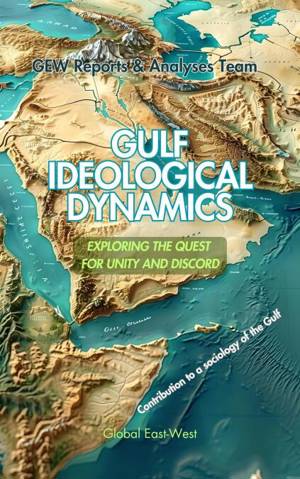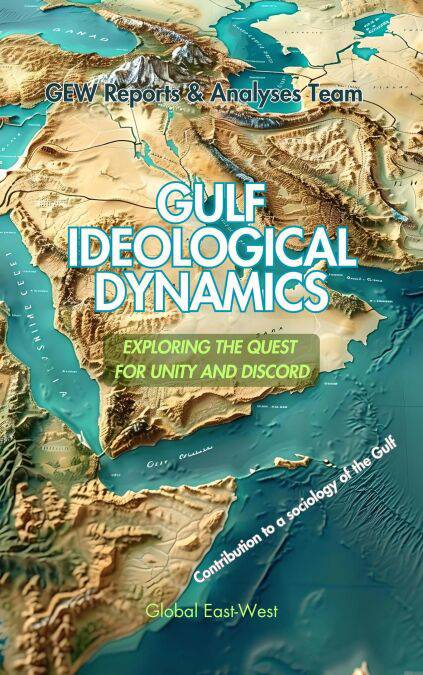
- Afhalen na 1 uur in een winkel met voorraad
- Gratis thuislevering in België vanaf € 30
- Ruim aanbod met 7 miljoen producten
- Afhalen na 1 uur in een winkel met voorraad
- Gratis thuislevering in België vanaf € 30
- Ruim aanbod met 7 miljoen producten
Gulf Ideological Dynamics E-BOOK
GEW Reports & Analyses Team., Hichem Karoui (Editor)Omschrijving
The Gulf ideological system is a set of interconnected beliefs and principles governing the region's political, economic, social, and cultural spheres. It combines various ideologies, including religious, nationalist, tribal, and pan-Islamic ideologies. It is shaped by a combination of historical, cultural, and socio-economic factors. Political alliances, economic shifts, social movements, and cultural exchanges contribute to its transformation. Economics plays a significant role in shaping Gulf ideologies. The region's wealth, derived from oil and gas reserves, has driven rapid economic development and created distinct economic ideologies within the Gulf. The social dimension of the Gulf ideological system is shaped by religion, culture, and societal norms. Islam influences various aspects of social life, contributing to conservative social ideologies in some Gulf countries.
This book, "Gulf Ideological Dynamics", delves into the intricate web of political, economic, social, and cultural forces shaping the Gulf region. Authored by the GEW Reports & Analyses Team under the expert guidance of Dr. Hichem Karoui, this scholarly work offers a comprehensive examination of the complex dynamics driving unity and discord in the Gulf. From analyzing historical tensions to dissecting contemporary challenges, this book provides valuable insights into the evolving landscape of Gulf ideologies. With meticulous research and astute observations, it sheds light on the interplay of various factors influencing regional dynamics. A vital contribution to the Sociology of the Gulf, this book offers a nuanced understanding of the ideological currents that shape this pivotal region.
Specificaties
Betrokkenen
- Auteur(s):
- Uitgeverij:
Inhoud
- Taal:
- Engels
Eigenschappen
- Productcode (EAN):
- 9798224905331
- Verschijningsdatum:
- 29/02/2024
- Uitvoering:
- E-book
- Beveiligd met:
- Adobe DRM
- Formaat:
- ePub

Alleen bij Standaard Boekhandel
Beoordelingen
We publiceren alleen reviews die voldoen aan de voorwaarden voor reviews. Bekijk onze voorwaarden voor reviews.











